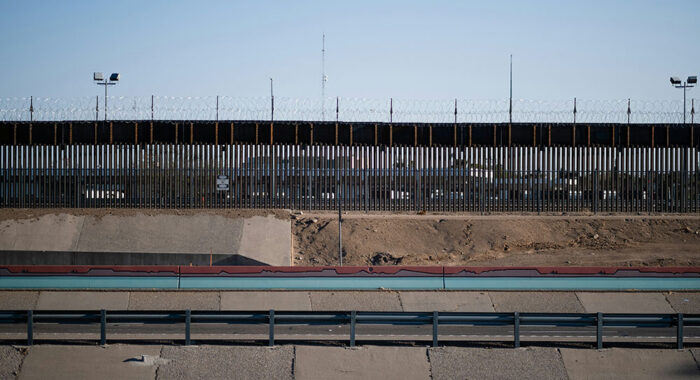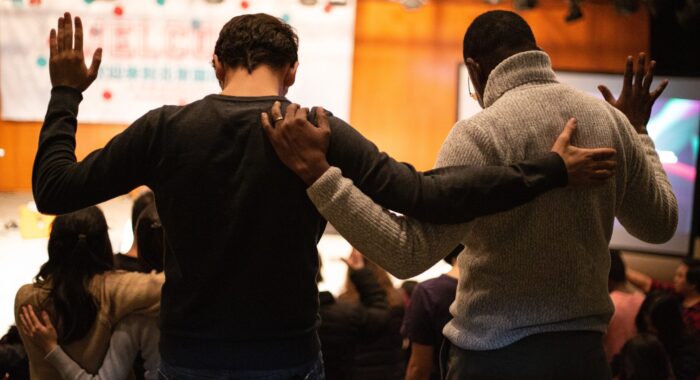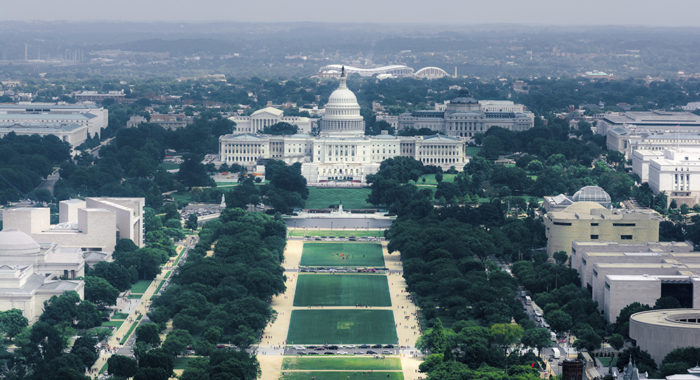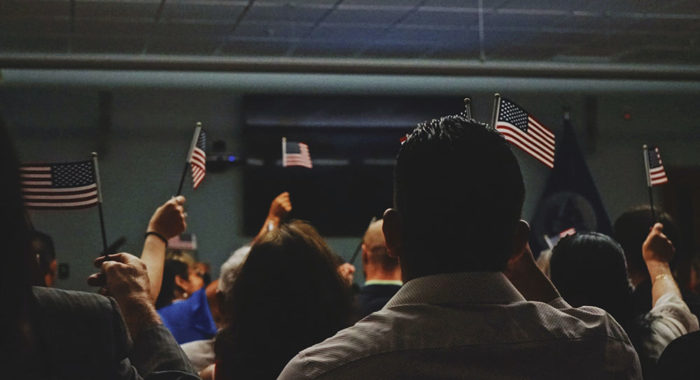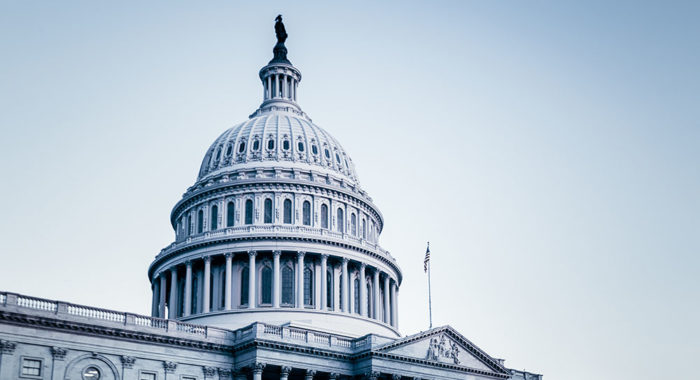PREAMBLE “The Biblical Basis” (Approved April, 1963)
The Christian, who on earth has no continuing city (Heb. 13:14) is nevertheless, to use the figure of Augustine, a citizen of two cities: the Church and the State.
As a member of the Church, he belongs to the Body of Christ, which derives its nature and its functions from the nature and the will of God. Its members are holy unto their head, the Lord Jesus Christ.
Their relationship to one another is that of the several members of a single body existing to do the will of God. Their relationship to the world is likewise regulated by the precepts of holiness and the bidding of the will of God.
As a member of the State, on the other hand, the Christian belongs to the human expression of the restraining and permissive sovereignty of God exercised within sinful human relationships for purposes of public justice, protection and tranquility.
Although its subjects may include members of the Body of Christ, the State does not derive its source or its sanction from their holiness or their piety. Both source and sanction of the State are rather from the sovereignty of Him who rules and overrules in the affairs of all men alike.
In the Scriptures neither the authority nor the function of the State is made to depend upon the religious integrity of the State or any of its members — witness the respect accorded pagan states by the prophets (Isa. 44:28, 45:1); by our Lord Jesus Christ Himself (Matt. 22:21, 17:24-27); and by the apostles (Rom. 13:1-7, I Tim. 2:2, I Pet. 2:13-14).
The Christian, therefore, exists in relation to the Church and also in relation to the State. As a sinner, in common with all men whether redeemed or not, the authority and responsibility properly delegated to State by the sovereignty of God is his. As a redeemed sinner, the special privileges and responsibilities of those who live within the will of God among men are also his.
These two aspects of existence — Church and State — may overlap in the life of Christians, but they do not coincide. Neither are they properly to be considered in conflict. It pertains to the State to exercise justice, afford protection and promote public tranquility. It pertains to the Church to promote the worship of God and to spend and be spent in Christian service.
The State may not hinder Christians in their service to God and man with respect to the Body of Christ. The Church may not hinder Christians in their service to God and man with respect to the State. Neither may bind the conscience of the other, nor prohibit in any way the free exercise of the proper duties and responsibilities of the other, under God.
Because both State and Church derive their being from God, both government and education should ideally reflect this theistic consciousness. None of life’s activities are truly complete without God, whether men recognize this or not.
However, because it does not belong to the purview of the State to teach men about God; and because it does belong to the purview of the State to exercise justice, afford protection and promote tranquility even among men who may not worship God, therefore it is not the business of the State to promote or to repress religion.
By the same token the State should welcome the influence of the Church upon society and not hinder the personal testimony of its Christian members who, as Christians, labor for a recognition and appreciation of God and of godliness in every aspect of life.
HISTORY OF CHURCH-STATE SEPARATION IN THE UNITED STATES (Approved April 8, 1964)
I. Historically
When the Puritans settled in Massachusetts in 1620, they were ardent advocates of religious liberty, but by 1776, when the Declaration of Independence was proclaimed, the Congregational Church enjoyed full or partial establishment, as it did in New Hampshire and Connecticut. The influence and power of religion in government was further evidenced in the colonies by the fact that Anglicanism was the established religion in Virginia, North Carolina, South Carolina, Maryland, and in New York City, and the three counties surrounding the city.
Rhode Island led the way in Separation of Church and State and in guaranteeing the free exercise of religion. Pennsylvania and Maryland practiced religious toleration. Disestablishment of the Anglican Church in the South and Congregationalism in the North was not fully achieved until 1833.
The fundamental civil and religious principles for the Old Frontier were guaranteed by the Northwest Ordinance of 1787. Article I guaranteed that no one should be hindered by religion or worship. Article III acknowledged religion, morality, and knowledge to be essential to human happiness and encouraged the practice of religion.
II. Constitutionally
With the adoption of the United States Constitution (1789), the Separation of Church and State and the free exercise of religion were forever legally guaranteed. The most significantly relevant passages are:
1. Article VI, Section 3, states that “ no religious test” shall be required as qualification for public office.
2. The First Amendment barred the Congress from enacting legislation restricting the basic rights of citizens. With respect to religious rights, the Congress can “make no law respecting an establishment of religion” or “prohibiting the free exercise thereof.”
3. The Fourteenth Amendment prohibits states as well as the Congress from interfering with the guaranteed immunities of United States citizens. Therefore, neither the Congress nor any state legislature can establish a Church or prevent the free exercise of religion. The Amendment sets up a protective wall preventing the intrusion of the State upon the Church, or the Church upon the State, and guarantees the freedom of each citizen to believe and to practice his faith.
III. Judicially
The Supreme Court of the United States, in matters pertaining to Church-State relations, has rendered a number of judicial decisions regarding the meaning and intent of the Constitution. The more significant are:
1. Terrett vs. Taylor (1815) which prohibits the State from expropriating lands of the Church
2. Reynolds vs. the United States (1879) which permitted congressional action against religious practices “which were in violation of social duties and subversive of good order”
3. The Oregon Case (1925) which permitted private and parochial schools to be operated by religious sects
4. The Louisiana Textbook Case (1930) which permitted the State to furnish free textbooks to all school children whether enrolled in private, parochial or public schools
5. The Jehovah’s Witnesses Case (1943) which absolved sects from saluting the United States flag
6. The Everson Case (1947) which, while strongly endorsing the principle of Separation of Church and State, permitted the transportation of parochial school children at public expense
7. The McCollum Case (1947) which prohibited the use of public schools and public school buildings for classes in religion
8. The Zorach Case (1952) which permitted the dismissal of public school children for off-campus classes in religion
9. The Sunday Law Case (1961) which declared that Sunday laws are not now religious in character and may be enforced
10. The Torasco Case (1962) which stated that religious tests may not be imposed as qualification for holding public office
11. The New York Regents Prayer Case (1962) which prohibited the use of State-ordered prayers in the public schools
12. The Pennsylvania-Maryland Bible Reading and Prayer Case (1963) which prohibited compulsory prayer and Bible reading in the public schools
There would seem to be a lack of consistency. in some of these decisions which are currently being questioned in courts and legislative bodies, but in general, it may be said that the United States Supreme Court has prohibited
(1) setting up any establishment of religion
(2) support of religious instruction by taxation or otherwise
(3) required attendance upon religious exercises
(4) restraints upon the free expression of religious belief
All statutes and court decisions tend to uphold the principle stated in the provision of the Federal Constitution: “Congress shall make no law respecting an establishment of religion, or prohibiting the free exercise thereof…”
RELIGION IN NATIONAL LIFE (Approved October, 1963)
WHEREAS, evangelicals are committed to the conviction that, while Church and State must be separate, the State has an irrevocable obligation to the transcendent God of the universe and to objective justice, and in view of this fact, has an obligation to inculcate in rising generations the belief that religion, morality and knowledge are essential to good government and the happiness of its citizens; and
WHEREAS, recent decisions of the Supreme Court of the United States declared that state-sponsored Bible reading and prayer as religious exercises are unconstitutional and illegal on the ground that the principle of separation of Church and State inherent in the First Amendment would thereby be transgressed; and
WHEREAS, the resulting revolutionary changes in long-established practices are beginning to create a moral and religious vacuum in our educational system in which secularism, humanism, practical atheism and amorality are beginning to take root and thrive; thus threatening the very foundations of our society and the welfare of the nation,
THEREFORE, the National Association of Evangelicals proposes and endorses six courses of action, to wit:
1. The enactment of suitable legislation by the Congress of the United States, in the form of an amendment to the Federal Constitution which will strengthen the present provision for the free exercise of religion in our national life and allow reference to, belief in, reliance upon, or invoking the aid of God, in any governmental or public document, proceeding, activity, ceremony, school or institution.
2. The affirmation of the public school’s duty to do full justice to the large place of the Judeo-Christian tradition in our American heritage. There should be in all areas of subject matter an objective presentation of the contribution made by the Christian faith to the development of that heritage.
3. The respectful teaching of the Bible as history and/or literature as an integral part of the public school curriculum.
4. The full academic freedom for Christian teachers to teach from a Christian standpoint and to witness by example and personal life to the effects of Christian commitment.
5. The development of a strong sense of responsibility on the part of Christian parents for the religious education of their children. We call upon parents to conduct daily periods of family devotions and Bible reading in the home and to give every possible encouragement to the development of their moral and spiritual nature.
6. The active resistance to any hostility toward a religiously based view of life as it may appear in the public schools. This resistance may involve personal sacrifice by Christian parents and Christian teachers and in some cases may require the establishment of Christian day schools to safeguard the American Christian heritage.
Believing that ours is a nation under God and remembering the divine promise, “Blessed is the nation whose God is the Lord,” the National Association of Evangelicals commits itself to the foregoing courses of action and will seek to promote them as widely and effectively as possible.
RELIGION IN THE PUBLIC SCHOOLS (Approved April, 1963)
In previous pronouncements the National Association of Evangelicals has held that a firm commitment to the separation of church and state should not imply an espousal of secularism or practical atheism through the exclusion of all reference to God in the public schools. The public schools are not free to propound the tenets of any particular sect or denomination, yet they should by all means provide the students with an atmosphere of friendliness to and acceptance of the concepts of the existence of God, man’s responsibility to God and to fellowmen, and the benefits of promoting godliness.
In keeping with this, the National Association of Evangelicals reaffirms its position that the Bible is an appropriate book for reading in the public schools, and that the right of students to pray should not be abridged. We realize that this is a question which has been under consideration before the highest judicial body of our nation. We hope that our courts will render no decisions which will promote a religious vacuum. Such a vacuum, even if it were attainable, would not be neutral. On the contrary, would operate in favor of those groups which oppose any mood of reverence for the Bible as the Word of God, and others who openly deny the existence of God. .
When the public schools do in fact become inherently hostile to a religiously based view of life, as already tends to be the case in certain states, Christian parents must consider seriously the choice of means by which to educate their children. Christian schools throughout many parts of our nation provide a live alternative to the public school, and it seems clear that the Christian school movement will continue to grow. The National Association of Christian Schools, an affiliate of the National Association of Evangelicals, is active in the establishment of such schools. This does not mean that we are recommending abandonment of the public school system, but rather the correction of the existing problem within that system.
Believing that ours is a nation under God, and remembering that “blessed is that nation whose God is the Lord,” the National Association of Evangelicals commits itself to the foregoing point of view and will seek to promote the acceptance of this position as widely as possible. Believing that this is the course of right, we will not be discouraged if the acceptance of this position is not immediate. It must be deeply rooted in the lives of our citizens, our leaders and our public officials if it is to endure, and it is toward that goal that we press.
THE CHURCH AND WELFARE (Approved April 8, 1964)
One of the fundamental principles of Christian social welfare is to help people to help themselves. To do this effectively involves many facets of cooperation. There appears to be no solid wall of separation here between church and state. Separation must be maintained by clear working relationships. This is possible by following the teaching and example of Him who was “separate from sinners”, yet mingled so freely with them that He was dubbed “the friend of sinners.”
The Bible teaches that the Christian as an individual and the church as a group has clear responsibility for the social and economic welfare of men, especially those of “the household of faith.” This is not the church’s primary mission, but it is an integral part of her total Christian obligation.
The progress of western civilization has involved the state in social and economic welfare activity to an ever-increasing degree. The church, therefore, faces problems of church-state relations of increasing complexity. It is highly desirable that the basis of co-operation be kept clear by the use of written contracts.
The church may as an agent administer government assistance without compromise of the principle of the separation of church and state if the church’s policies are not controlled or influenced thereby or vice versa. This may be done in conjunction with the church’s own relief program or as a separate operation. In consideration of the contractual arrangement between the church and government, certain policies may be stipulated and agreed upon, but the choice of the personnel and total administration of the program must be the entire responsibility of the church. The church cannot become the arm of the government.
TAX EXEMPTION FOR RELIGIOUS INSTITUTIONS (Approved April 8, 1964)
It is recognized that religious institutions, such as churches, schools, hospitals, and other welfare agencies are exempt from federal, state, and local taxes on the grounds that they are of a non-profit nature, and on the moral principle that such institutions are the chief pillars of society and make a substantial contribution to the welfare of the state and the perpetuity of sound government.
The National Association of Evangelicals does not consider such tax exemption to be per se a violation of the principle of separation of church and state. However, we do believe that to include under this exemption peripheral profit-making businesses, not related to the mission of the church, and the resulting tax-free income for the church, is an unlawful subsidy, prohibited by the First Amendment of the Bill of Rights in the Constitution of the United States.
AID TO CHURCH-RELATED SCHOOLS (Approved April, 1963)
Reaffirming its belief in the wisdom of maintaining financial and functional separation of church and state the National Association of Evangelicals notes with concern current attempts to procure government funds for church-related schools through legislation to aid education.
We recognize that certain forms of government aid to educational institutions, including church-related schools, are already approved in law either by outright grants or loans, including college housing, scientific equipment for school laboratories, the school lunch program, and student loans. But these should not be taken as precedents for a general program of aid to schools which would include church institutions. No such conclusion is warranted. Each of the programs which now exist is based on legislation which grew from a specific need and in each case care has been exercised to make the law consistent with the non-establishment clause of the Constitution.
We are not criticizing schools accepting the benefits of existing laws. However, extreme caution is necessary if church institutions are to maintain the freedom which derives from carefully hewing to the line of church-state separation.
SCHOOL BUS TRANSPORTATION (Approved April 8, 1964)
The National Association of Evangelicals is of the opinion that bus transportation is considered a necessary part of most modern educational systems. Therefore, any educational system motivated by religious and/or sectarian purposes should provide its own facilities and tax funds should not be appropriated to convey children to schools providing religious instruction.



 View All Updates
View All Updates 

